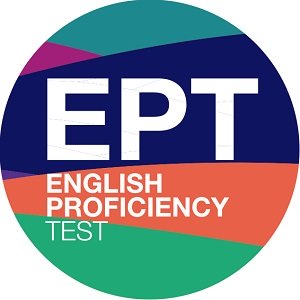|
How are the words selected for the National Spelling Bee
The National Spelling Bee was begun in 1925. In 1941, Scripps Howard acquired the rights to the program. In 2004, Scripps Howard's National Spelling Bee was expected to involve more than ten million students at the local level, and ended up with 265 national finalists. Scripps Howard publishes a yearly collection of thousands of words to help spellers study, called Paideia. The words are categorized and then divided into three difficulty levels. The words in Paideia are typical of the words that will be used in most local spelling bees. Local contests are not limited to the words in the book. href="/go/http://www.amazon.com/gp/product/0877792011/qid=1138326489/sr=2-1/ref=pd_bbs_b_2_1/102-8707280-5044124? s=books&v=glance&n=283155">Webster' s Third New International Dictionary (Springfield, MA: Merriam-Webster, 1981) is the source for all the words used in these spelling bees. Word lists for local spelling bees usually begin with easy words selected from the beginning categories in Paideia and gradually progress to the more difficult words. In some local spelling bees with a high level of competition, spellers remaining at the end of the contest will likely receive words to spell that do not appear in Paideia. The National Word List is composed of four sections and totals more than 750 words: 1) Round One Words, 2) Round Two Words, 3) Round Three Words, and 4) Rounds Four and Higher Words, concluding with the Championship Words. Round One words are selected from Paideia and the 250 words appearing in the "Additional Words section" of Books I and II of the Sponsor Bee Guides (word lists most sponsors use at their final bees). Round One words may appear to be among the most difficult in the competition. Bee officials and most spellers regard Round One as the easiest round because most spellers will have studied Paideia and the "Additional Words" section of Books I and II of the Sponsor Bee Guides. The only complete source for words in Rounds Two and higher is Webster's Third New International Dictionary and its "Addenda Section." The 25 words given for the written test in Round Two will represent a wide range of difficulty. While determining the difficulty of words is highly subjective, the Bee's best intention is that Round Three words be of a relatively equal difficulty level. Words in Rounds Four and Higher are intended to be markedly more difficult than words presented in Round Three and will gradually progress in difficulty until Bee officials move to the Championship Words subsection. Words are chosen primarily by a three-person Word Panel headed by word list manager. Other Bee officials occasionally contribute to the word-selection process. The process from word selection to a finished list begins nearly one year before the list is used in competition. It begins in the early summer when word panelists compose rough word lists. The panelists often choose words from their everyday reading and subjects of interest to them. It is not standard practice for word panelists to consult old Bee word lists when composing new word lists. The proposed words are checked against the Bee's official dictionary to ensure their compatibility with the Bee's rules. For example, if a proposed word cannot be found in the Bee's official dictionary or if the dictionary lists more than one acceptable spelling for a word, the proposed word is removed from consideration.
Next, word panelists use information provided in Webster's Third New International Dictionary and its "Addenda" section to compose concise dictionary entries for their words. Each entry includes word, pronunciation, part of speech, and definition. The word panelists also include with each entry a sentence that illustrates the use of the word. The pronouncer provides the language of origin information for each word, drawing heavily from information provided in Webster's Third New International Dictionary and its "Addenda Section." After the dictionary entries have been composed by the word panelists, the information is consolidated and a rough draft of the word list is composed by the word list manager. Members of the Word Panel, along with some other Bee officials, meet for two days in October to review the rough draft. Many entries for the words are revised, and some words are deleted from the list. During the October meeting - after the editing work has been completed - words are rated according to the panelists' and Bee officials' best estimation of difficulty. When rating a word, consideration is given to the word's relative level of familiarity, the degree to which it can be spelled phonetically, and the degree to which the correct spelling may be deduced from knowledge of word roots and language patterns. A word's length in letters or number of syllables is sometimes a factor. After the October meeting, the word list manager again edits the word list and also reorders the list according to the ratings. During another two-day Word Panel meeting in February, the list is again discussed and some word placements are shifted if there is a consensus. After the February meeting, a final word list is created and provided to the pronouncer. The pronouncer then begins the process of researching each word's pronunciation(s) and compiles detailed notes about the words, which are used during the competition. In May the final word list is provided to the judges for their review. Finally, one day before the competition begins, Bee officials (pronouncers, judges, word panelists, and the director) meet for a final review of the word list. A change or two may be made, and then the list is deemed ready for use in competition.
|

















